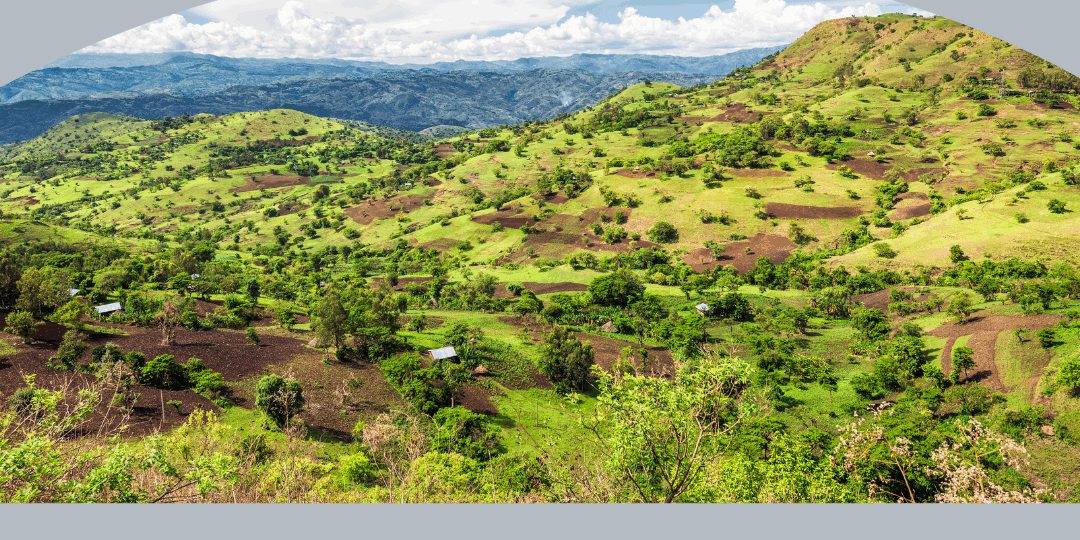Cultural Heritage in Harmony:
The Gedeo Landscape of Climate Resiliance
Abiy, Getachew
IIHS Regional Contributor
Addis Ababa, Ethiopia
Indigenous Knowledge and Environmental Stewardship
Indigenous knowledge of environmental management has been practiced for centuries across various regions of the world, reflecting deep and enduring relationships between people and their natural surroundings. Among these knowledge systems is the understanding of forest-human interactions, developed and sustained by local communities.
Since the early 1990s, the United Nations (UN) has increasingly recognized the importance of indigenous forest knowledge, emphasizing its value in sustainable forest management. According to the United Nations (2004), indigenous forest knowledge is a cumulative body of practices, beliefs, and insights passed down through generations via cultural transmission and shaped by adaptive processes. This knowledge encompasses the interactions between all living beings, including humans, and their environment. The United Nations acknowledges forests as vital natural resources, essential for economic, social, and environmental well-being.
Who Are the Gedeo?
The Gedeo people are an ethnic group in southern Ethiopia, with an estimated population of 1.5 million living within an area of approximately 1,200 square kilometers. Despite being one of the most densely populated regions in the country, the Gedeo have maintained a unique and highly sustainable relationship with their natural environment.
Community-Based Forest Governance
A key aspect of the Gedeo’s environmental conservation practice is their communal decision-making process regarding tree cutting. If a household wishes to cut down a tree, village elders must first deliberate on the necessity of the action. Approval is granted only if the household commits to planting another tree in its place.
This traditional practice has contributed to the region’s lush greenery and extensive forest coverage, making the Gedeo area one of Ethiopia’s most ecologically rich landscapes. These conservation methods have helped prevent large-scale deforestation and natural resource depletion, which often result from human activity.
A Spiritual Approach to Conservation
The Gedeo people believe that the presence of trees and forests on Earth is the result of Magano’s (God’s) will. According to their worldview, Magano created all living beings, including humans and forests, with the forests intended to sustain human life.
As noted by Takele Merid (2025), Gedeo community members understand that cutting down trees without the knowledge and approval of elders—and without a valid socio-cultural justification (referred to as gooressa or qinxa)—is considered improper and disrespectful to Magano. Their environmental ethics strongly discourage deforestation. The belief is that unjustified tree cutting leads to serious consequences, such as drought, the drying of water sources, soil infertility, and a decline in the fertility of plants and animals—a condition known as burra. These outcomes are seen as direct threats to both human life and the balance of nature in Gedeo.
Global Recognition of Local Wisdom
In 2023, UNESCO recognized the Gedeo Cultural Landscape as a World Heritage Site in honor of the people’s ancient agroforestry practices. These practices have played a crucial role in preserving biodiversity and ensuring sustainable land use for generations.
Linking Local Practice to Global Goals
The Gedeo people’s approach to forest conservation serves as a valuable model for sustainable environmental management. Their work demonstrates how indigenous knowledge can play a crucial role in preserving ecosystems for future generations.
Importantly, the Gedeo’s conservation efforts align with broader global discussions on sustainable development, climate change mitigation, and biodiversity conservation. Their traditional agroforestry system supports several United Nations Sustainable Development Goals (SDGs), particularly:
-
SDG 13 – Climate Action
-
SDG 15 – Life on Land
-
SDG 11 – Sustainable Cities and Communities
By maintaining forest cover, the Gedeo contribute to carbon sequestration and climate resilience. Their practices exemplify how indigenous knowledge offers viable solutions to pressing environmental challenges. Recognizing and integrating such practices into global policies can enhance efforts to combat deforestation, promote sustainable land use, and ensure environmental sustainability on a broader scale.
Reference Materials
- https://sdgs.un.org/goals
- https://www.peoplegroups.org/explore/groupdetails.aspx?peid=11567
- Haile, G. (2020). Indigenous ways of environmental protection in Gedeo community, Southern Ethiopia: Implication for environmental sustainability. Cogent Food & Agriculture, 6(1), 1766732. https://doi.org/10.1080/23311932.2020.1766732
- Merid, T. (2025). Indigenous knowledge of forest management among the Gedeo of southern Ethiopia. African Study Monographs, 45, 1–23. https://doi.org/10.34548/asm.45.1
- Regassa Debelo, A., Legesse, A., Milstein, T., & Orkaydo, O. O. (2017). “Tree Is Life”: The rising of dualism and the declining of mutualism among the Gedeo of southern Ethiopia. Frontiers in Communication, 2, Article 7. https://doi.org/10.3389/fcomm.2017.00007
- UNESCO World Heritage Committee. (2023, September 10). Amended Draft Decision: 45 COM 8B.6 – The Gedeo Cultural Landscape. https://whc.unesco.org/document/201130
- United Nations. (2004). The role of forests in sustainable development. United Nations Department of Economic and Social Affairs. https://www.un.org/esa/forests

Abiy Getachew is a social development professional and researcher passionate about indigenous knowledge systems, environmental conservation, and community resilience in Ethiopia.







